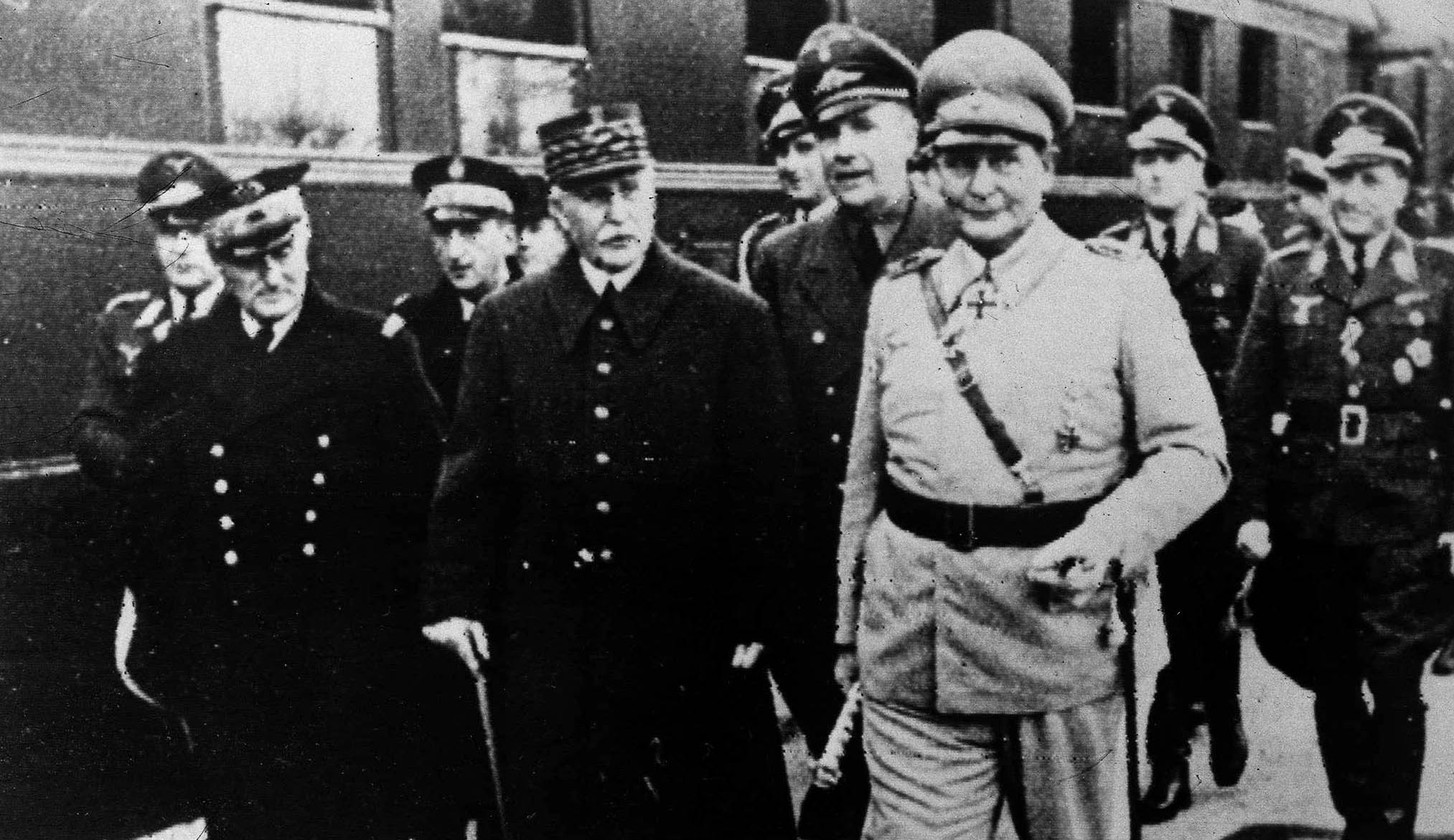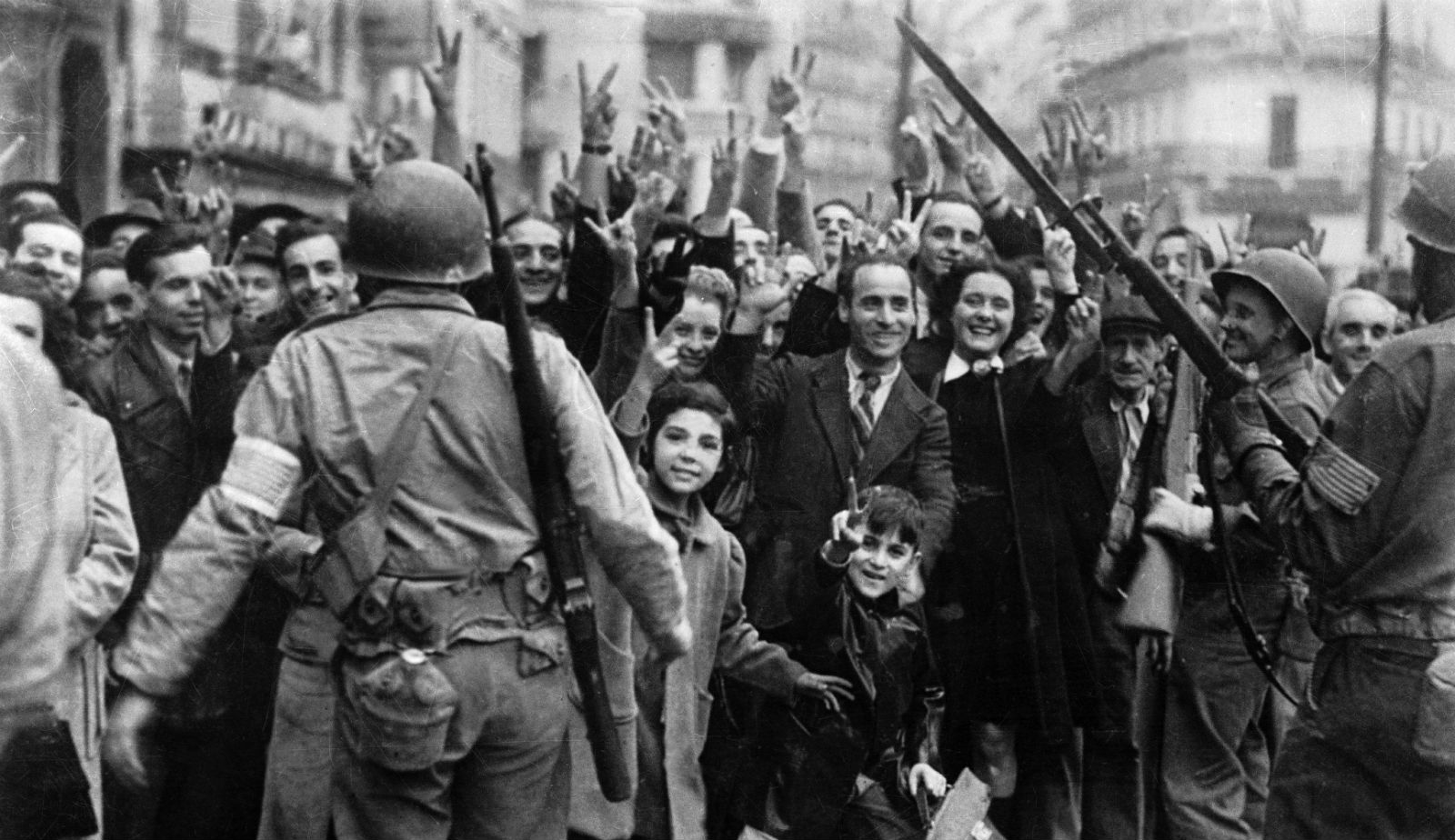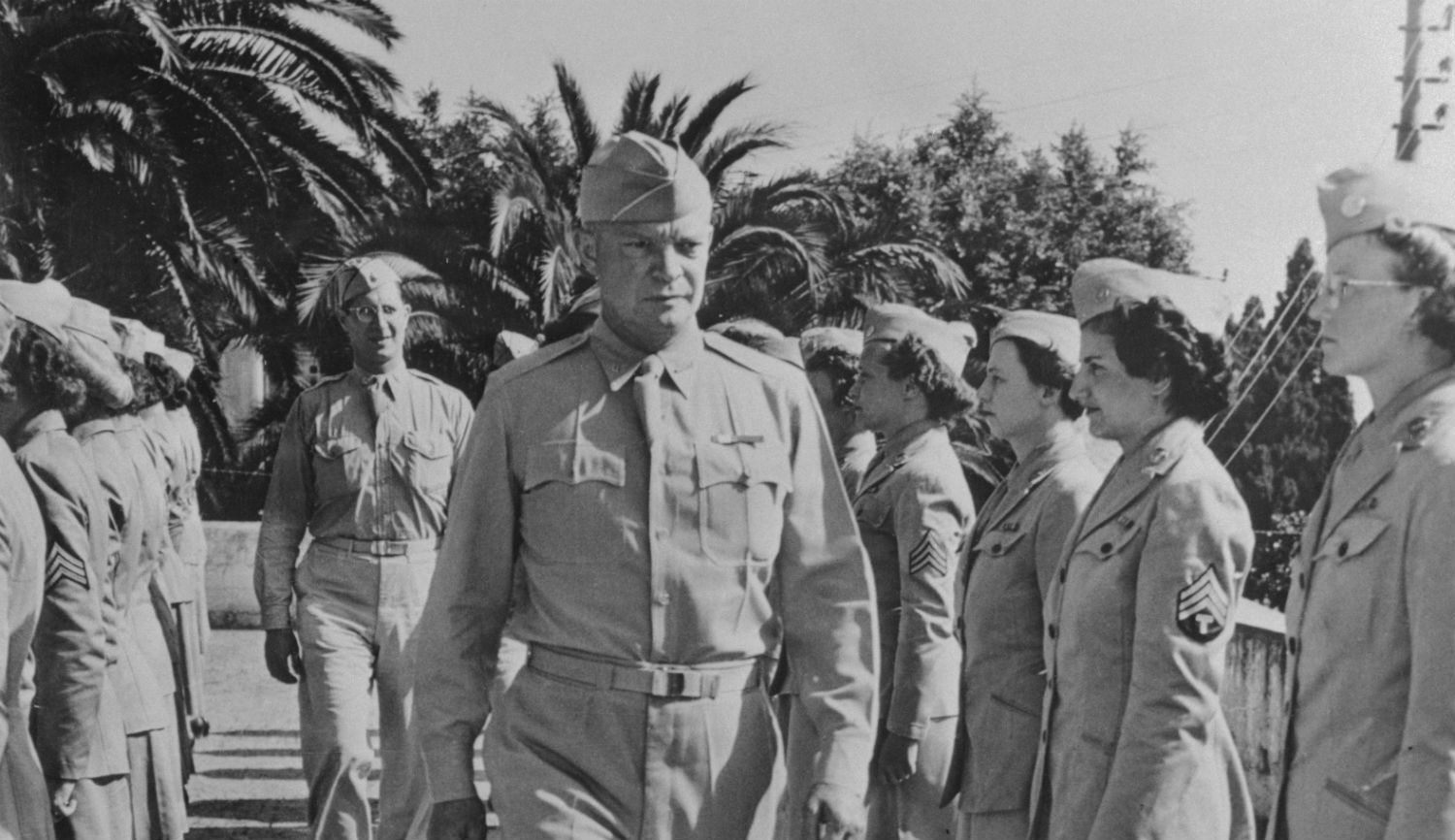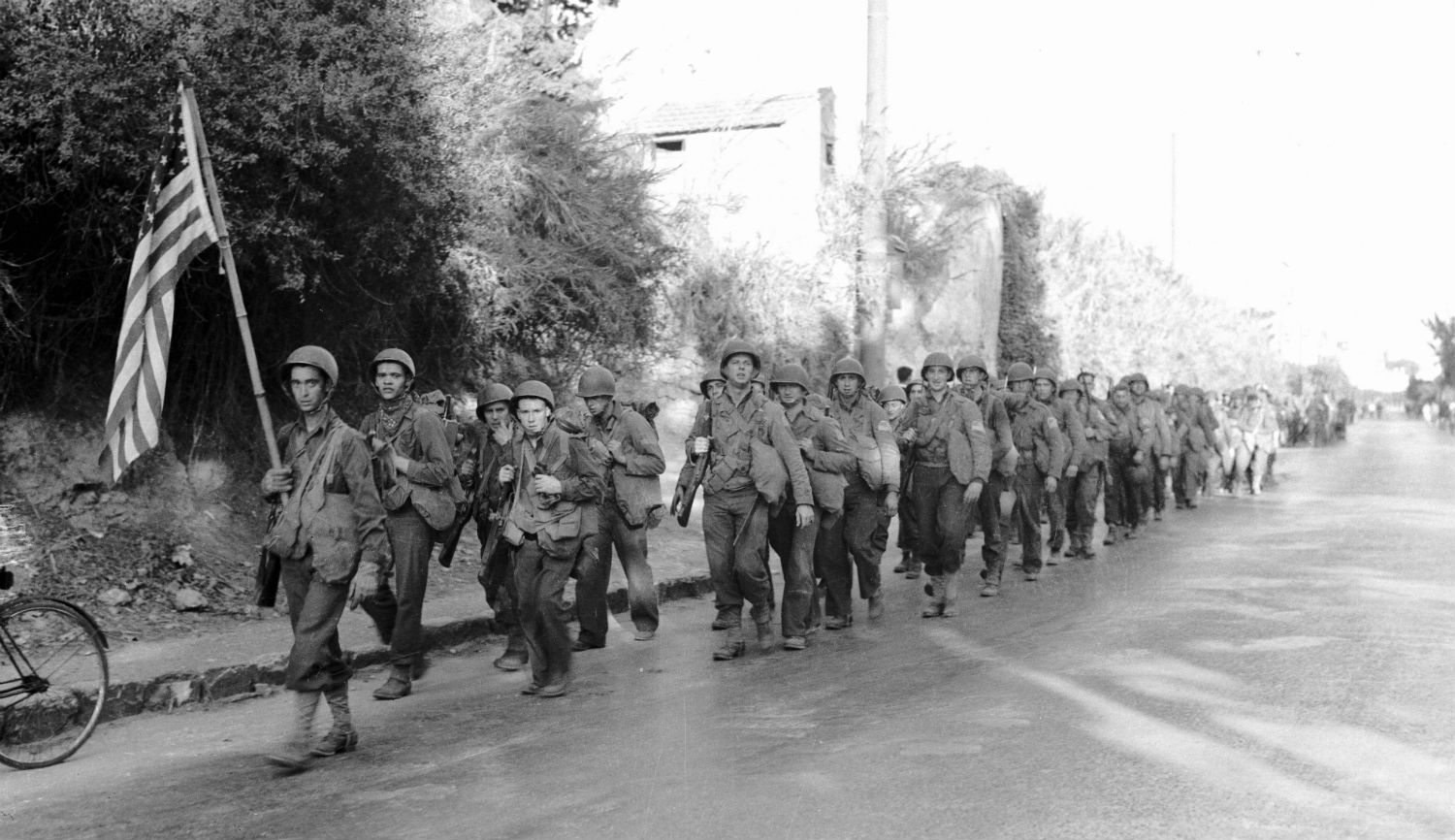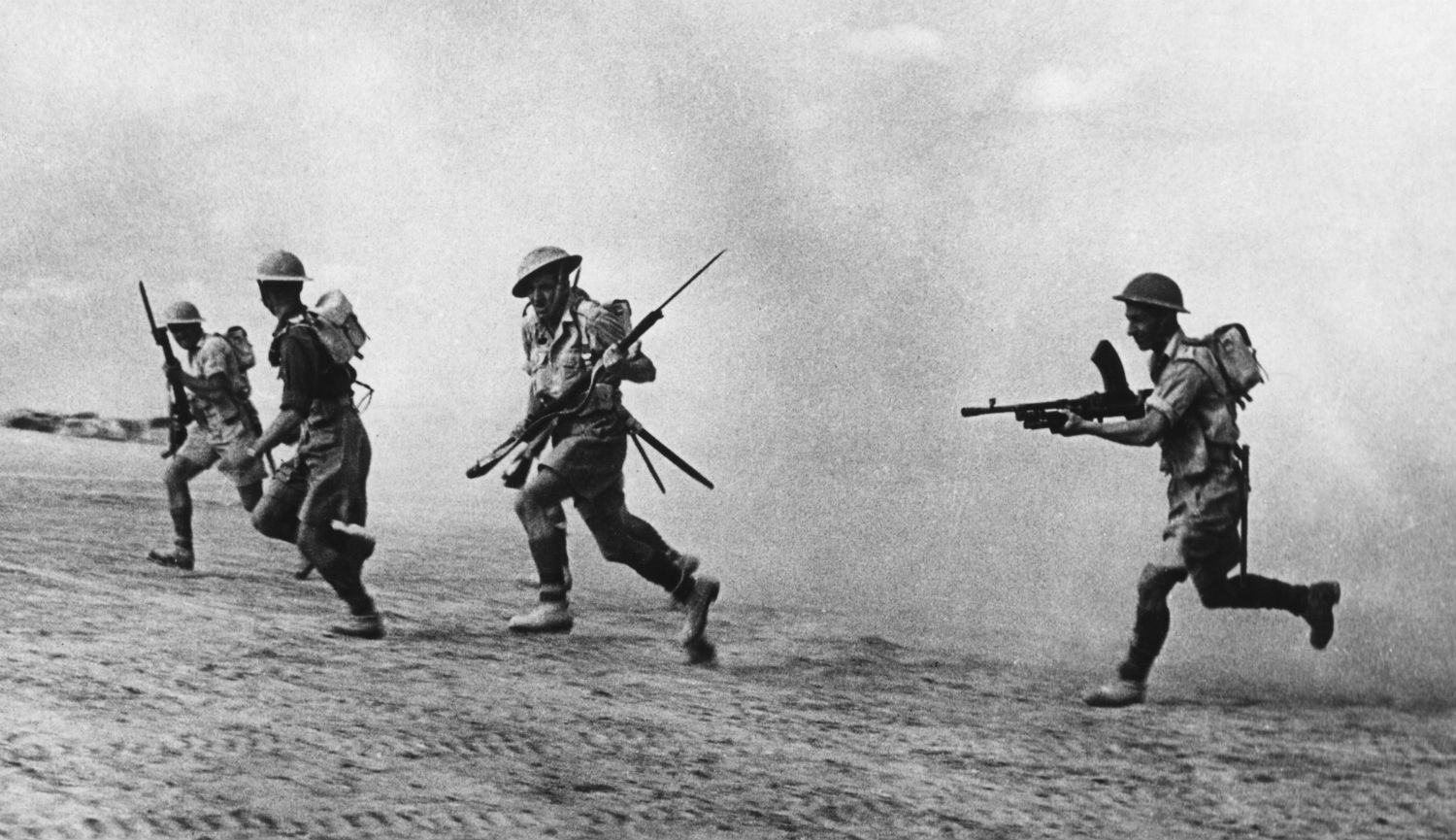I am grateful to Michael Doran, David Pryce-Jones, and Michael Marrus for their kind, generous words about my essay, “The Jews Will Have to Wait,” and for endorsing at least two of its three core arguments: that Operation Torch, the November 1942 Allied invasion of North Africa, deserves greater attention both for its broader role in the history of World War II and for its narrower role in how, in the course of that conflict, the United States came to approach the “Jewish question.”
In what follows I mean to concentrate mainly on the second of these issues, that is, the “Jewish question,” before ending with a brief reminder of my third argument: that Torch laid the groundwork for key aspects of U.S. Middle East policy for the following two generations.
I’m especially gratified that all three respondents agree with me that, as I was at pains to detail, Algerian Jews were indeed betrayed by the Allies and specifically by the Americans in the aftermath of Torch’s remarkable military success—a success to which Algerian Jews themselves had signally contributed. To the degree that my respondents demur from my portrayal, their (gently worded) critiques focus principally on the source and the circumstances of that betrayal.
In the hours and days after Torch, I wrote, the French Vichyites in North Africa passed the baton of their homegrown anti-Semitism to U.S. officials. To Michael Doran, this way of putting things slights the preexisting receptivity to that message on the part of American officials who “had already, independently, developed a fear of association with Jews.”
I do not doubt this: the outsized wariness among many U.S. officials lest association with Jews undermine America’s standing in the Middle East provided a welcoming environment that helped grease the transfer of anti-Jewish attitudes from the Vichyites to key political and military players in Torch’s leadership. But on the American side I would trace those attitudes as much to the back-slapping, nose-in-the-air clubbiness of the pin-striped crowd in Foggy Bottom as to the dyed-in-the-wool anti-Semitism that certain foreign-service officers, themselves sons of Protestant missionaries, had “imbibed,” as Doran evocatively phrases it, “with [their] mother’s milk.”
Still, neither explanation accounts for the whole story. Take, for example, the case of General Mark Clark, Eisenhower’s deputy and the military commander who was responsible for negotiating the “Darlan deal” in the hours after the Allied invasion and who worked closely with the Vichy official Jean-François Darlan in the weeks that followed. That deal, I wrote, guaranteed “unfettered Allied access through Morocco and Algeria” in exchange for recognition of Darlan as French high commissioner for North and West Africa. It thus put paid to Torch’s professed goal of liberating the local peoples from the yoke of Vichy and ensured the perpetuation of the latter’s power and fascist authority.
As it happens, Clark’s mother was Jewish, meaning that technically he was Jewish as well—even though as a cadet at West Point he had arranged to be baptized an Episcopalian. If his goal in converting was to remove a potential obstacle to his rise in the ranks, it succeeded: he later became the youngest three-star general in the war. But did Clark accede to the deceit, delay, and deception that constituted post-Torch policy toward Jews in order to distance himself still farther from his Jewish origins? We cannot know for sure. But at the very least, his was certainly not the usual story. (By one of those curious coincidences of history, my father, who, as our family joked, won the war as a corporal/clerk in the Army Air Corps, served in Clark’s Fifth Army in North Africa and Italy.)
An even less in-the-mold story is that of Robert D. Murphy, Roosevelt’s personal emissary to North Africa and the principal U.S. “villain” in my essay. Though Murphy rose to become one of the most celebrated diplomats of his era, his was not, by any means, the stereotypical Andover-to-Yale-to-Foggy Bottom pedigree. Neither, any more than Clark, was he the son of a Texas oilman or of a Protestant missionary.
A native of Milwaukee, Murphy was a conservative Catholic of German-Irish origin whose father, a one-time saloon owner, had quit school in fourth grade. As a young man working for a construction company, Murphy fell three floors in a freak elevator-shaft accident that shattered his left foot and changed his life. He learned to type, took the civil-service examination, and started his public-service career in the post office, later becoming a cipher clerk and, eventually, moving to the diplomatic corps.
Murphy had (at least) two attributes that would prove greatly advantageous in his professional life. One was a knack for being in the right place at the right time. When, for example, an Austrian bully named Adolf Hitler fired a pistol in a Munich beerhall, Murphy was there, taking notes as a junior foreign-service officer. The other was a talent for covering his tracks. Despite failing in his principal mission in North Africa, which was to prevent neutral French forces from firing on the invading Allies, he managed to be remembered by posterity (according to his New York Times obituary) for “his plan to win French North Africa for the British and Americans [through] a delicate mixture of diplomacy, bluff, threats, espionage, and violence that he managed to bring off against heavy odds.”
It must also have helped Murphy’s reputation later on that, having failed to lift a finger to protect Jews who risked their lives for the Allies, and omitting in his memoirs any mention of the pivotal role played by local Jews in the invasion of Algiers, he would serve after retirement as co-chairman of the National Conference of Christians and Jews.
Over the years, in an effort to uncover some triggering event that might help explain why Murphy was so utterly indifferent to the fate of Jews in distress, whether Algerian Jews who had risked all to help the Allies on the night of the invasion or North African Jews languishing in desert prison camps, I have pored over obscure census data, information from his college years at Marquette, and even urban-planning documents from turn-of-the-century Milwaukee. Did Murphy’s family rent a tenement from a Jewish landlord? Did his father owe money to a Jewish banker?
So far, I have found no smoking gun; something else seems to have been at work. To me, the something that makes the most sense is a frame of mind that had developed over a decade of Murphy’s diplomatic service in France before his wartime mission in North Africa, combined with the advice he received from Darlan and his associates on how to govern Arabs and Jews with cold-blooded efficiency.
Call it the French connection.
This leads me to another explanatory angle on the “Jewish question,” alluded to in passing by Doran but developed powerfully by Michael Marrus, the author of outstanding scholarship on Vichy policy toward the Jews: namely, that it is essential to put the events of Algiers 1942 in their broader political and geostrategic context. Especially, Marrus suggests, we need to examine “how Roosevelt and the sometimes sharply disagreeing officials around him viewed the Middle East of the day.”
Here, too, I have no quarrel in principle. Lionized as the leader who built and then deployed the “arsenal of democracy” to liberate the world from fascism, Roosevelt, on closer inspection, was a much grayer, more complex, and flawed character.
As Doran correctly notes, it was FDR, architect of the stirring words of the Atlantic Charter, who jauntily told French General Charles Noguès precisely what the anti-Semitic, anti-democratic resident-general in Morocco wanted to hear: that the best response to pleas by local Jews for the restitution of their pre-Vichy voting rights was to dispense with elections altogether. And it was FDR, whose name, as David Pryce-Jones reminds us, was on the rallying cry for Arabs and Muslims to join with the Allies in a “Great Jihad for Freedom,” who also gave Murphy specific instructions when they met in September 1942 that “No change in the existing French civil administration”—that is, no change from rule by the fascist Vichy administration—“is contemplated by the United States.”
From Pearl Harbor on, Roosevelt was ruthlessly consistent. Just as Marrus contends, his goal was to win the war, not to risk the lives of American soldiers on behalf of the political rights of newly liberated populations.
Yet here, too, the details of precisely what happened when it happened cannot be adequately or conclusively explained away by reference to the cold-blooded “political expedient” of the “Darlan deal.” If, as the old adage goes, an anti-Semite is someone who dislikes Jews more than is strictly necessary, does Roosevelt really merit that appellation for the extra pound of flesh extracted from the Jews of Algeria in the wake of Torch? Was it he who counseled Murphy to pile on the red tape so as to slow the process of arranging for the release of thousands of Jews (and others) from Vichy torture and punishment camps? Or who suggested that Murphy’s (Jewish) “Jewish-affairs adviser” recommend, in the interests of Algerian Jews themselves, fewer rights after liberation than they enjoyed before the war? Or who ordered Murphy to do nothing when, in the middle of the night, the Vichyites still in power in post-Torch Algiers barged into the apartment of the crippled elderly father of José Aboulker, leader of the Algiers Jewish partisans, terrorized his family at gunpoint, arrested the old man and refused to let him change out of his pajamas or even retrieve his cane before sending him off to what would have been (if not for the intercession of OSS agents) certain execution in the Algerian desert?
To me, once again, something else seems to have been at work. Indeed, in his memoirs Murphy specifically cites the French as the source of the advice to slow the release of prisoners from the Vichy camps.
Nor am I convinced that the something else was, as Michael Marrus suggests, the looming issue of the Arab-Jewish dispute over Palestine. As much as that issue may have been on the minds of American Jewish leaders, and as much as some in policy circles may have viewed it as a landmine in the path of any hope America might have of extending its influence into the Levant or the Arab East, there is little evidence that Palestine policy concerned the people who planned or executed U.S. policy in North Africa in the months before or after Torch. In the relevant documents or memoirs, it comes up but rarely.
For example, toward the end of his autobiography Diplomat Among Warriors, Murphy, the key player in our story, doesn’t hesitate to accuse American Jewry of “intimidating” State Department officials who proposed “technically sound and fair solutions” to the Arab-Israeli dispute. Despite this, however, his lengthy account of the origin, execution, and aftermath of Torch itself includes not a single mention of Palestine, a term that altogether makes only two cameo appearances in his nearly 500 pages of diplomatic history.
Moreover, whenever Palestine is mentioned in the broader historical record of Torch, it is rarely cited as a reason to adopt the extreme position that eventually governed U.S. policy toward the Jews of Algeria. Consider, for instance, an extended policy-planning memo written in late 1942 by J. Rives Childs, an experienced U.S. diplomat in the region and a veteran of the Jerusalem consulate who served as chargé d’affaires in the key strategic post of Tangiers from 1941 to 1945.
After a lengthy discourse on how Jews had suffered for centuries at the hands of local rulers, Childs devotes a paragraph to the Palestine issue, warning that “what happens in Palestine” could have negative consequences for America’s standing in the region. But his ultimate policy recommendation sounds a different note, and bears quoting in full:
In our relations with the Jews of North Africa, it is thought that any effort to modify to any considerable degree the status of the Jews as prevailing prior to the recent French anti-Jewish decrees would result in a serious upsetting of the delicate balance prevailing between the Muslims and the Jews in that area and might very well lead to serious disorders and the development of a strongly anti-American feeling among the Muslims. The consequences to us could be very grave.
The key word, italicized above and again here, is: “prior to the recent French anti-Jewish decrees.” Childs, who later followed William Eddy—Doran’s showcase “hater of Zion”—as U.S. ambassador to Saudi Arabia, and who was himself probably no slouch in the anti-Zionism department, warned only against elevating the legal status of Jews beyond what they had had before Vichy. Even he didn’t contemplate the idea that liberating North Africa would leave the Jews worse off than they were before Vichy came to power.
That latter position, it seems, was instead the purposeful, punitive, almost vengeful decision of certain other officials, a position, to repeat, insufficiently explained by reference to the grand strategic design of wartime policy. For the Americans’ post-Torch Vichy French partners, by contrast, such a position, and such a policy, made perfect sense.
Now to address very briefly the third of my original arguments: that Operation Torch gave birth to two policies that became hallmarks of U.S. Middle East behavior for decades: (1) prioritizing strategic ties with regional strongmen over the political, social, and economic development of the region’s peoples and (2) adopting a zero-sum attitude toward U.S. relations with Arabs and Jews/Zionists.
Only Doran comments directly on this point, indicating his agreement with my analysis. Given his standing as a fine historian of U.S. Middle East policy, I welcome the endorsement. In other quarters, however, I’m certain that my contention would provoke vigorous dissent, especially from historians less generous than the ones Mosaic kindly invited to comment on my essay. I look forward to it.
And a final note: in his response, David Pryce-Jones writes that the anti-Vichy Jewish resistance in Algiers “consisted mostly of Jews but with some Arabs.” Eighty percent of the partisans who showed up for action in the wee hours of November 8 were indeed Jewish, and among the other 20 percent there was indeed a handful of indigenous Algerians. But the lion’s share of that 20 percent consisted not of Arabs but of non-Jewish Frenchmen of European origin: that is, French Christians. Having written a book about Arabs who protected Jews during the war, I would have been delighted to tell the story of Arabs who fought side-by-side with Jews to throw off the shackles of Vichy French rule in Algiers; but that would have been fiction.
In this same connection, it is worth noting that in the daring effort to capture Algiers for the Allies on the night of Torch, an effort that saved the lives of many American and British soldiers, two of the young resistance fighters gave their own lives. One (Jean Dreyfus) was Jewish; the other (Alfred Pilafort) Christian. On this coming November 8, at the World War II memorial on the National Mall in Washington, when taps is played and wreaths are laid in honor of the American and British troops who perished in Operation Torch, it is fitting to honor the memory of those two brave young men as well.
More about: History & Ideas, Middle East, World War II
